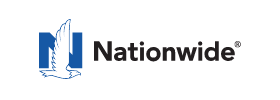If you’re sending your child off to college, one of your discussion topics may be whether their car is going with them. Depending on where your child is going and the field of study, having a car may be beneficial. However, on the flip side you may have several concerns.
Before packing your college student’s car and saying good-bye, there are some things you should know and do.
Find out the college’s policy
Depending on where it’s located, the number of cars allowed on campus may be limited. For example, some college gives first priority to the juniors and seniors. If there are additional spots available, the remaining students are put into a lottery. So, spending a lot of time discussing if the car can go, may be a moot point.
Discuss your auto policy with your insurance agent
There are many variables that may come into play with your insurance policy. If your student is attending college 100 miles or less from your current residence and is full-time, it’s likely your policy provides coverage. Because the car will be parked in a different environment, you may want to discuss policy coverage and limits to make sure you have adequate coverage. For example, if the car was parked in your garage, but now it’ll be outside, having comprehensive coverage may be a good idea.
Even if your student is going to college out of state, they may still be able to stay on your policy. However, some states have different car insurance laws. Talking to your insurance agent can help you adjust your policy accordingly.
Lastly, just because your student is off to college, it doesn’t mean the good student discount automatically ends. Many companies will continue the discount for unmarried, full-time students up to age 25 if they maintain a 3.0 GPA.
Don’t forget about safety
To keep your student and car safe, here are some things you can do:
- Install a dashboard camera.
- Always keep the windows up and the doors locked.
- Remove valuables items.
- Install a car alarm.
- Put an anti-theft device on the steering wheel.
- Review the vehicle crime statistics at your school.
- Know where campus security/police are located.
- Purchase roadside assistance.
Discuss responsibility
There are many benefits of taking a car to college. However, doing so increases your student’s responsibility. Things to discuss include:
- How to handle a friend who wants to use the car.
- How to handle friends who want you to be their ride service.
- What to do if car warning light turns on.
- The car as a distraction i.e., grades come first.
- What to do if in an accident.
Understand state requirements
If your car is registered in your home state, there’s nothing you’ll need to do. However, if your student decides to become a permanent resident of the state where he/she is attending college, that changes the situation. Not only will a trip to the Department of Motor Vehicles (DMV) be necessary, your child will also need to get his/her own insurance policy.
Each year, it’s important to review your insurance needs before your student leaves for college. Just when you think you have it figured out, something changes.
Insurance for Students FAQs
Q: Will my child’s belongings be covered if his/her dorm is subject to theft, fire or other disasters?
A: Usually homeowners’ policies extend to a campus dorm room, but only up to a certain amount. If your student has expensive items, consider getting more coverage.
Q: Will my child’s belongings be covered if he/she lives in off-campus housing?
It depends. Call 913-747-1000 to determine whether your student’s property would be protected under your homeowners’ policy. If not, consider purchasing renter’s insurance, which ranges from $15 to $30 per month and also provides liability coverage if anyone is injured in the residence.
Q: Does my child need to be a full-time student to be covered under my health plan?
No. Your child is eligible as long as they are under 26 years old.
Q: What happens if my student gets seriously injured while at school?
A: This is a very real possibility, so it is important to contact Midwest Professional Insurance to discuss your health plan and whether there are providers near your child’s university or college.
Q: Can I get a discount on my auto policy if my young driver is away at school?
A: Usually you can, provided your son or daughter attends a school that is more than 100 miles away from your home. Your auto policy could also change if he or she takes a car to school, so be sure to contact Midwest Professional Insurance.
PLAN AHEAD
Call our office today at 913-747-1000 to learn more about insurance solutions for your student.
This article is intended for informational purposes only and is not intended to be exhaustive, nor should any discussion or opinions be construed as professional advice.
13 Risks Facing Professional Services Companies and How to Help Protect Your Business
Working with businesses, the stresses range from inability to meet staffing needs (very real right now) to lack of availability of materials. As your trying to navigate these, to have large equipment come up missing or have a data breach (or even an accusation of one) can put everything on hold and cost you time and money! Remember it’s a policies’ job to RESPOND to these claims and losses, you’re not just paying for the COVERAGE, you are paying for the REPRESENTATION. Call me today and let’s determine where and what to insure, and how.
– FELISHA MCDOUGALD CIC CPRM
Call 913-747-1000 | Text 913-359-9121
The exposure to risk for professional services businesses continues to grow as the world becomes more and more dependent on technology and as the industry faces other emerging risks. Here are 13 professional services risks to look out for and the types of insurance coverage that can help protect your business:
1. Cyber Risks
It takes only one cyber event or data security breach to impair a professional service company’s financial results, or even potentially put them out of business. One successful hack lost laptop or lost paper record can cause a data breach that impacts the privacy of customers, employees, and others.
Travelers can help protect your professional service business before, during, and after a breach. CyberRisk coverage* can be a crucial safeguard against the devastating financial consequences of a cyberattack, with protection that provides coverage solutions for digital forensic investigations, litigation expenses, regulatory defense expenses/fines, crisis management expenses, business interruption, cyber extortion, and betterment.
2. Employee Injuries
Work-related accidents are an unfortunate reality in any industry. For example, musculoskeletal injuries can occur in slippery walkways on your property, or as a result of prolonged hours at workstations that may not facilitate optimal employee efficiency and comfort.
Significant medical bills may result from workplace accidents or injuries. Travelers’ Workers Compensation insurance can provide resources aimed at helping employees make a timely recovery and smooth transition when they return to work.
3. Employment Practices
In an increasingly litigious environment, there’s a risk that an employee can sue your professional service company if they believe they were treated unfairly in your workplace. Terminations, promotions, hiring practices – all invite scrutiny and can increase your risk of being sued. And there is the potential publicity surrounding a wrongful termination or discrimination lawsuit that can harm your reputation and brand. Travelers Employment Practices liability insurance* can help protect your organization from the costs associated with an employment-related claim.
4. Equipment Failures
Equipment breakdown of heating, cooling or electrical components can disrupt operations and result in increased costs and lost profits. Often armed with digital sensors and microprocessors, much of this equipment’s sophisticated nature may render it more susceptible to failure and downtime.
Repair or replacement costs to get your operations back up and running can be covered through policies that insure equipment failures. Travelers’ Equipment Breakdown insurance can help cover costs and expedite a return to normal operations, and a comprehensive package like EnergyMax21SM can help cover your lost income caused by a shutdown.
5. Errors & Omissions
Regardless of how well you plan, the potential for mistakes in the performance of a professional service is very real. Your business’s financial security can depend on how well protected you are from a lawsuit or claim. Travelers Miscellaneous Professional Liability coverage* offers protection for an array of emerging exposures, as well as for losses resulting from negligence or errors and omissions in the performance of professional services.
6. Evolving Workforce Dynamics
Adopting a culture of safety starts with recruiting and hiring, and continues through to onboarding and day-to-day employee engagement.
To build and maintain a safe and healthy workforce, start by leveraging preventive programs designed by insurers. For instance, as a customer, you could take advantage of the traveler’s Workforce Advantage® platform, which can help you analyze working conditions in offices and facilities, as well as implement changes that emphasize ergonomic techniques to ensure people and equipment are interacting efficiently and safely.
7. Going Global
For companies with international operations, a vehicle accident or workplace injury could have costly ramifications if the occurrence isn’t adequately covered by domestic policies. Your insurance representative may help you conduct a quick check of covered risks and policy limits in foreign countries where you may operate to help you identify any potential gaps.
Insurance programs for international exposures seek to equate foreign coverages to U.S. standards. Extending to more than 100 countries, Travelers Global Companion Plus+ ℠ coverage is an effective solution for international exposures and includes Property, General Liability, Commercial Auto and Workers Compensation policies, and more.
8. Large Losses
There are routine claims and then there are incidents with the potential to generate catastrophic losses that exceed the limits of a primary liability policy. Consider the case of a sales rep who causes an at-fault accident with a company vehicle, resulting in severe injuries and extensive property damage.
Consider adding excess liability coverage that works with your primary insurance policies. Helping to insulate your organization from potentially crippling losses, Travelers’ Excess Casualty coverage can provide additional financial protection when a loss exceeds the limits of your primary general liability policy and other qualifying coverages.
9. Mobile Equipment
State-of-the-art surveying equipment that moves from job to job may hold value beyond prescribed policy limits. It’s not unreasonable to think that theft of or damage to that job-critical property may result in substantial costs for replacement or repair.
To appropriately cover property that is transported to different locations, the ability to schedule specific items and cover them for a stated or appraised value is important. With Inland Marine Coverage from Travelers, that coverage can extend to unique works of art or antiques displayed in offices or common areas.
10. Third-Party Risks
Hiring subcontractors can help expand your business’s capacity, but what happens if they make a mistake?
Transferring risk to the appropriate party is an important aspect of your insurance strategy. While Travelers’ General Liability insurance could help cover you for the negligence of a subcontractor, you should require these parties to carry their own insurance. In addition to securing Business Insurance from Travelers, consider discussing risk transfer strategies with your agent.
11. Vehicle Accidents
From company cars to vans and heavy trucks, your fleet can be both an asset and a liability. Serious vehicle accidents not only pose a threat to the value of your vehicles but can also involve serious injury to pedestrians or occupants of other vehicles. And the risk is ever-present.
Commercial Auto Insurance lets you select liability and property damage amounts that cover minor fender benders on accidents of a more complex nature. In addition, Travelers’ Commercial Automobile insurance coverage may extend to rented vehicles and medical expenses incurred by third parties.
12. Visitor Injuries
As clients and other visitors come and go, the odds of an on-site injury to those parties increase. Nowadays, litigation over these types of incidents is all too common and can lead to significant legal expenses as well as the possibility of verdicts that can carry devastatingly high damage awards.
In light of these possibilities, general liability coverage is critical. It can help protect your business from the costs of a legal defense and payments for damages when someone claims your business has caused them bodily injury or property damage.
13. Weather and Unexpected Events
Hurricanes along the Atlantic coast, California wildfires, and powerful storms just about anywhere typify the perils that businesses face. Damages to buildings and computer systems can upend operations and constrict cash flow.
Consider the right insurance that provides financial protection to enable your business to get back up and running as soon as possible after weather damage occurs. For offices and business equipment that are the backbone of your operations and comprise the bulk of your physical assets, commercial property insurance can provide coverage for your business’s physical assets, and coverage helps keep revenue flowing when the unexpected happens.
Solutions for All Risks
For service-oriented companies, insurance needs can be complex. Find a trusted partner who understands the unique risks facing your business and offers comprehensive solutions to help you prevent losses and mitigate claims costs. With Travelers, you get an insurer that has your back.
Call Midwest Professional Insurance at 913-747-1000 for all your business insurance needs.


















